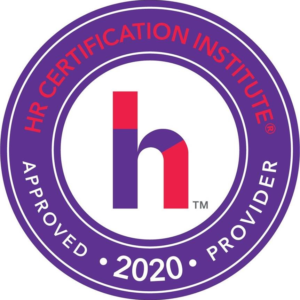Basic Workers Compensation Claim Management Investigation and Reporting ‘Best Practices’
John J. Meola is a Certified Safety Professional (CSP) and holds an Associate in Risk Management (ARM) from the Insurance Institute of America. He has many years of experience on both sides of the insurance business- from large national carriers to private business, to insurance agency operations. He is an Instructor at VA Commonwealth University School of Business and teaches a series of safety-related courses including Accident Investigation. He is an OSHA 500 Outreach Trainer (Construction Safety) and an Executive Officer with the Colonial VA Chapter of the American Society of Safety Professionals. He is an energetic and motivated speaker and uses numerous real-life examples to illustrate key points of learning in his teaching.

This webinar has been approved for 1.50 HR (General) recertification credit hours toward aPHR™, aPHRi™, PHR®, PHRca®, SPHR®, GPHR®, PHRi™, and SPHRi™recertification through HR Certification Institute® (HRCI®). Please make note of the activity ID number on your recertification application form. For more information about certification or recertification, please visit the HR Certification Institute website at www.hrci.org.
For any further assistance please contact us at support@grceducators.com

Workers Compensation insurance basically is set up to pay for an injured worker's medical treatment and lost wages. This sounds relatively simple, but the details can quickly become overwhelming to a person unfamiliar or new to the process. Unless you are prepared and know what to expect. The key players are identified in our discussion. Key activities and steps to have in place BEFORE a claim occurs are also featured, and in fact, are equally or more significant than handling the actual claim.
Most businesses with more than a few employees need to carry Workers Comp insurance, also known as ‘Employers Liability’. This is a statutory requirement in most states and depending on your line of business, can be an appreciable cost. Managing the process of filing and tracking a claim can become complex when there are certain factors involved, such as following a severe injury, an auto accident with an employee driver or passenger, on job sites, etc. This webinar will explore the topic of claim management from the layman’s perspective and offer advice on how to minimize costs associated with any claim. Human Resource staffs who handle claims will benefit from the discussion.
Areas Covered
- The importance of well-defined Position Descriptions
- Having an Early Return To Work Policy in place
- Communicating with the various parties involved in the claim process
- Importance of a well structured Safety & Health Program
- Safety Manuals, safety training, safety meetings, safety committees, safety inspections, etc
- Your relationship with the person who SOLD you the insurance (agent or broker) and the people who actually hold the Policy- called ‘The Carrier’
- How the Claim process actually works – who does what, when
- How to properly investigate a claim and how to report it
- Do’s and don’ts in the process
- When to call in an expert
- What to measure, record, document, report
- Best reporting methods. Did you realize that the medical community still uses FAXES for the transfer of data? This should inform our decision making about the State of the Art systems that will be caring for our injured employee
Who Should Attend
- Human Resource Staff and Technicians
- Operations Managers
- Recruiters, Hiring Officers, Temp Agency Staff
- Insurance Agents and Brokers
- Plant Managers
- Business Owners of all size and type
- Supervisors and Foremen
- Office and Administrative Person involved in insurance decisions
- Claim Adjusters
- Claim Technicians
- Nurse Case Managers
- Medical Staff
- Financial Managers and CFO’s
- Insurance Purchasing Agents
- Fleet Managers
- High-Risk Business Managers (i.e. Construction, Steel Erectors, etc.)
Why Should You Attend
There is no such thing as an ‘average’
claim. Due to a host of variables, even the simplest of injuries can result in a myriad of medical, pharmaceutical, rehab, lost time, etc.
expenses. It can become a fairly complex equation very quickly. Because workers comp is basically a form of ’no-fault’ insurance, it is prudent to have a basic set of controls in place to report, investigate, track,
and manage the claim process. There are also many diverse players involved, and each of them will play the role of various signs in the process. Understanding who does what and when is helpful to guide business decisions on managing a claim. Medical costs associated with a
typical doc in the box walk-in clinic can be astronomical. Even more so for hospitals. More so for specialists. Diagnostic tests, pain meds,
rehab, etc. Knowing the road map can help guide a business through the maze of medical check-points. We will discuss the basic and intermediate navigation of the worker's comp system. Most people will be surprised to learn what happens on ‘the other end’ of the claim process. Knowing the right vocabulary and terminology is included in this program.
-
$200.00
-



